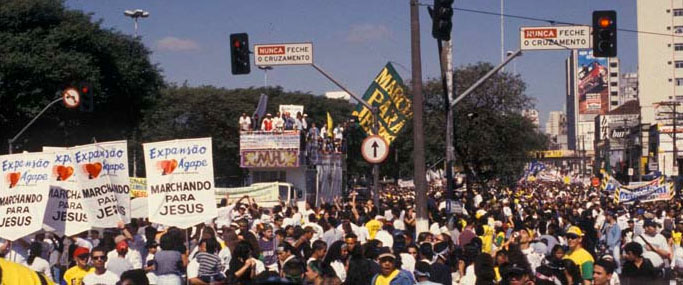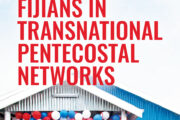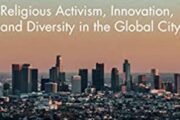An old axiom among social scientists who study renewalist movements goes: “Pentecostals and Charismatics don’t engage in civic projects; they are the projects.” While this odd pairing of spiritual dynamism and disengagement from the broader social context still characterizes some renewalist groups, more compelling stories of burgeoning civic-mindedness abound.
In Nigeria, local innovations of the Protestant work ethic are beginning to displace older iterations of the prosperity gospel and inspire renewalist activism in politics, community development and HIV-AIDS outreach. Pentecostal and Charismatic communities in Central America—where renewalist movements now account for a quarter to a third of the population in some countries—are providing leadership opportunities for women in a region where gender bias has long shaped political and religious culture. And in Brazil, Marina Silva, a Pentecostal candidate for president on the Green Party ticket, won 20 percent of the vote in 2010.
The sheer numbers of renewalists in the parts of the world where Christianity is growing most rapidly will inevitably influence the way economic development, religious authority and political power evolve in those regions. As members of these movements begin to shape civic institutions through their participation and activism, Pentecostal and Charismatic religion will likely become an important consideration in national and regional policy practices, particularly in the global South.
Richard Burgess, University of Birmingham, on the political role of Pentecostals in Nigeria
Centre of Pentecostal and Charismatic Studies
PCRI Nigeria and Zambia









